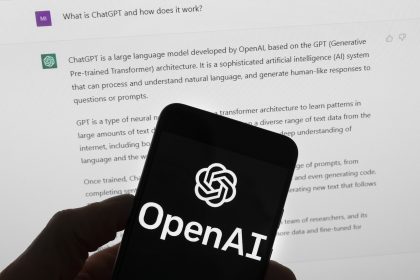XPRIZE and Musk Foundation Name Student Carbon Removal Competition Winners

LOS ANGELES — Winners have been announced in the $5 million carbon removal student competition award program launched by XPRIZE with support from the Musk Foundation, to fund early-stage concepts and remove barriers of entry for carbon emission removal innovations.
Teams led by enrolled student competitors were able to submit concepts in two tracks of the program: carbon dioxide removal demonstrations; and measurement, reporting, and verification technologies. Awards of $250,000 were given to winning removal demonstration teams and awards of $100,000 were given to teams that developed technologies to indirectly enable carbon removal.
XPRIZE, a 501(c)(3) non-profit organization that coordinates public competitions to encourage technological developments, announced 23 student-led teams had been awarded cash prizes in the first round of the carbon removal competition. XPRIZE’s global carbon removal competition began in April and will disperse $100 million over the next four years.
“We want to make a truly meaningful impact,” Elon Musk, CEO of Tesla, Inc., SpaceX and president of the Musk Foundation said in a written statement. “Carbon negativity, not neutrality. The ultimate goal is scalable carbon extraction technologies that are measured based on the ‘fully considered cost per ton’ which includes the environmental impact. This is not a theoretical competition; we want teams that will build real systems that can make a measurable impact and scale to a gigaton level. Whatever it takes. Time is of the essence.”
One of the $100,000 awards was given to a group of undergraduate students at the University of Miami for their work in creating a low-carbon form of alkalinity that enhances oceanic intake of CO₂ from the air while countering local acidification. The project, known as the Accelerated Carbonate Ion Dissolution and Dispersal or ACIDD, was developed by student researchers Laura Stieghorst, Isabella Arosemena, Zach Berkowitz, Jeanette Betke, Isabelle Fitzpatrick, Anwar Khan, Eden Leder, Nancy Lewis, and Drew Rich.
Stieghorst explained in a UM press release the process speeds up a natural part of the geologic carbon cycle that normally takes thousands of years, safely curbing human-caused carbon emissions. The ACIDD team will follow up on their research by assessing the process’ environmental impact by measuring its effects on laboratory coral.
“The climate crisis is an existential threat that demands both immediate action, and a long-term commitment to bringing Earth’s carbon cycle back into balance for future generations,” Marcius Extavour, vice president of climate and environment at XPRIZE, said in a written statement. “We’ve already begun to feel the impacts of the climate crisis in our day-to-day lives, and the data shows us that we need both immediate action on emissions reductions, and sustained innovation to develop additional tools like carbon removal. That’s why this prize is so important. It’s about mobilizing and facilitating the development of scalable solutions that can make a real difference in stabilizing the climate over the coming decades.”
Another team of University of Wyoming students received a $100,000 award for developing a sensor for carbon sequestration that can detect CO₂ in soil to the sub-parts per million level, according to the Laramie Boomerang. This technology’s applicability extends beyond just eliminating carbon emissions, storing and repurposing waste CO₂ in addition to detecting and measuring the gas.
Two Southern Illinois University Carbondale graduate students and one faculty member were also among XPRIZE’s winners for creating a system to liquefy waste biomass for injection into underground voids like tapped oil wells. The team developed a procedure that converts decomposing plant and food waste into microbes that consume carbon-rich liquid, sequestering and preventing the material from re-entering the atmosphere.
International prize-winning teams included the University of Oxford, University of Toronto, University of Munich, University of Sydney and the Indian Institute of Technology, Bombay, among others. After four years of innovative work, XPRIZE judges will select a single grand prize winner to receive $50 million and three runners up to receive $30 million.
“Today’s college and graduate students have proclaimed that solving the climate crisis is one of the most important objectives of their generation,” Peter Diamandis, executive chairman of XPRIZE, said in a written statement.“It’s for this reason that this student competition is so critical. Our mission is to engage, inspire and guide the next generation of climate entrepreneurs.”
Reece can be reached at [email protected].
























